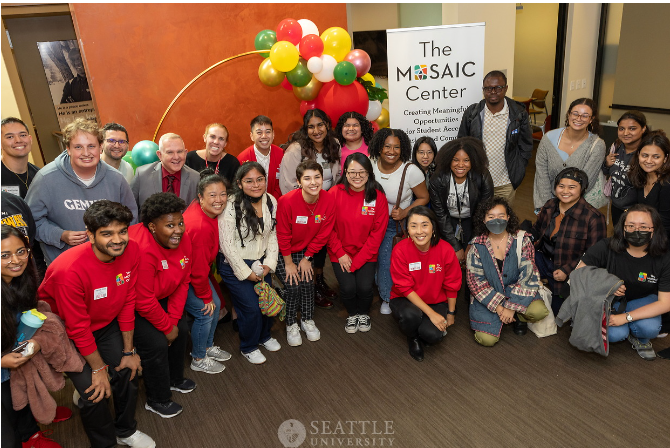
Featured Navigation Links
Programs & Events
Student Resources & Guides
The Links
Training & Development
Quick links
Welcome to The MOSAIC Center!
The MOSAIC Center creates Meaningful Opportunity for Student Access, Inclusion, and Community at Seattle University. We play a critical role in supporting intercultural learning and development of students. We encourage students to increase their awareness of self and others, and their role in co-creating a more inclusive campus culture by creating an environment that promotes curiosity and learning.

We are invested in the thriving of students from historically minoritized and underrepresented backgrounds, and we do this by:
- Enhancing a sense of belonging & creating opportunities for connection
- Providing social justice education & tools for advocacy
- Providing mentorship & leadership development
- Providing tangible resources & support
At the MOSAIC Center, you’ll find specific programs, services, and resources that support the thriving of students of color, LGBTQIA+ students, undocumented students, first-generation students, veterans and military-connected students, commuter students, transfer students, graduate students, and adult learners.